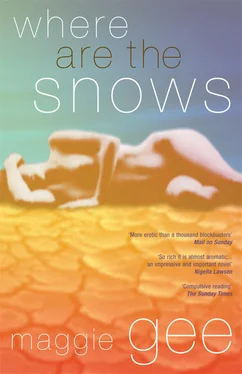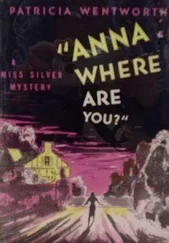‘I bet she doesn’t like the smell either.’
He suddenly lost his temper. ‘Fuck off, you bitch. Try sniffing yourself. You might learn something about yourself.’
The terrible thing was, he was right. I found that I smelled too. The truth was that neither of us washed any more. How could a single three-year-old child make two adults both too tired to wash?
She was about to become less tiring.
She became docile. She became ill. After only two days it was doctors we needed. She had diarrhoea, and fouled our bed, since she still refused to sleep in her own. (What a fool I was, what I fool I am. She had always shared a bed with three others, as she explained to Benjamin.)
The sorrow of it; she preferred him to me, she liked to sit near him, she talked to him, though it was I who had longed and planned for her, I who had crossed the world to find her.
Her docility was unnerving. She no longer wept and screamed for her mother. She too seemed tired; now we were all tired. (Only the childless aren’t tired. Why have I never understood, why didn’t someone bother to tell me?) I delayed calling a doctor because I was afraid. An ordinary doctor might say she must stay in a Brazilian hospital until she was better; they might try and make us take her home… If only we could get her on to the plane, only another day’s drive if we drove non-stop, if only we could get her back to civilised places with private doctors and properly trained nannies, I thought I would employ one for a month or so, just to show me the ropes, then I’d be able to sack her…
Then the silly dreams and fantasies ended. On the third day we stopped at a hotel and found she could not walk from the car. She wasn’t sleepy; she was too weak.
I wanted to carry her. I wanted to. But I wasn’t used to carrying things. I was good at running, dancing, walking, or I had been only recently, I have only recently grown older… I have never had to carry things. Servants or men have always carried things. Dead weights are incredibly heavy. She was so quiet, so mute, so good. She wasn’t unconscious, but she seemed not to see me. her eyes were losing the brightness of water, they were drying up, becoming opaque… suddenly I was very afraid, more afraid than I’d ever been… only once before had I been as afraid, and that was in New York when I knew what had happened, when I saw what Christopher had done, when I realised it was irrevocable…
I sat and clutched her on the hot plastic seat. I wanted to carry her but oh, I couldn’t. With her on top of me I could not move. I would have sat there holding her for ever, and no one could have separated us… But Benjamin saw, and saw I was crying. Benjamin took over.
We paid the hotel for a room. We paid the hotel to find us a doctor. We paid them more to get him there fast. The doctor came, and tutted and swore. He was a small fat man with a sweat-blackened shirt and his breath was a horrible fug of old drink. He gave us medicine. We paid him well. He threatened us. We paid him better. He told us we should take her home. With surprising tenderness (for he was a crook) he held her hand, and talked to her, and she almost smiled, she was briefly alive before the apathy came back. He held her hand, and insulted us. He said we were selfish, and stupid. He said we knew nothing about children, and nothing about Brazil, and nothing about the world. We were stupid, spoiled gringos. He folded the money we had given him and said we could keep her, if we wanted, if we wanted to be murderers.
What he said was true, and made him feel less dishonest. He staggered off for another drink.
The drive back was a worse nightmare. Benjamin told her she was going home, but I don’t think she believed she could ever go home. Still she rallied a little with the medicine. She drank water like a dog, slurping, desperate, and the diarrhoea grew less thin and persistent. She was easier to love when she didn’t smell, but I never stopped loving her, adoring her, as the car sped nearer to São Benedicto I loved her more and more.
I wept a lot. Benjamin drove. I held Anna Maria, and she let me hold her. I stroked her hair, I kissed her head, the burning, living crown of her head with its prickling of hot silky hair, she was still alive, she mustn’t die. Wherever our skins touched, we ran with sweat, but it didn’t matter, we touched each other. I knew I had to hold her enough in those four days to last me for ever. She was my child. I had lost the others; she was my last chance to be a mother.
(And yet, we almost murdered her. I haven’t yet managed to understand. I shall suffer it through again and again, I shall make myself think till I understand. What have I done; what have I done?)
When we found the family, they were glum and scared after the first unthinking joy at seeing her. They could see she was ill; did we think she was no good? Had Anna Maria disappointed us? Would the rich foreigners be angry with them? Would we be asking for our money back?
Instead we gave them more money. They would need a lot of money for the rest of her life. We couldn’t give enough to ensure that she got it, but we gave as much as our grief was worth, and that was a fortune to them. They couldn’t take in what was happening. I told them we were giving them money for Anna Maria’s education, that in our country it would have cost twice as much. But they stayed subdued. It was too much money.
I had to say goodbye to her. I had done it once in the car, before we saw them and they looked at me, and looked at her, and saw what we — what all of us had done to Anna Maria; before she was back with the family that proved I was not her mother and had never been her mother.
— I was her mother, all the same. I may be deluded but I still think it’s true. For those seven or eight days I was her mother, I was all the mother that she had. She slept beside me, she let me hold her, she let me sponge her and comb her hair. I washed the red dress out every night, I brushed the dust from her plastic sandals, I washed her feet, I kissed her feet.
I said goodbye to her out in the car. She had still not realised where she was. She sat forlornly on my lap, looking out of the window without seeing anything. I hugged her, awkwardly, shoulders, elbows, hard to hug someone who doesn’t hug back. I kissed her head, the thousandth, hundred-thousandth time I had kissed her head as we bumped across Brazil and she stared into the distance. I wanted to kiss her face, her lips, but she didn’t turn towards me.
‘We ought to go in,’ said Benjamin, tense with unhappiness.
‘Shut up. I have to say goodbye.’ — I forgot he hadn’t said goodbye.
I was going to give up, but at the last moment she realised where we had stopped, and a look of unbelieving joy startled her face, lit up her eyes — she turned towards me for confirmation and I kissed her cheek, I kissed her lips, my cheek was blessed by her small smooth cheek, she allowed me to kiss her face to face as she was transfigured by the hope of leaving me.
Although I had kissed her goodbye in the car I thought I would die if I left the hut without a gesture. It was my last chance of touching her. And yet I was ashamed, in the face of all those witnesses. But Anna Maria had slipped out of the back, into the yard where I first fell in love with her. Benjamin was talking to the parents; I went to look for her. Through the doorway I saw her sitting on the step. Her baby brother crawled beside her, patting and poking at her thigh. I watched her lift him as if he wasn’t heavy, I watched her jig him on her knee. It was a different girl from the girl in the car, more like the child with the marigold who lived here until she met me.
I was going outside to say some nonsense when something froze me in the doorway, before my shadow fell on her. I thought, she might be frightened. She might think I’ve come to take her again. It was clear to me I must leave her alone. I left her sitting in the sun with her brother.
Читать дальше












